Step 1: Start thinking about retirement regardless of your age
I don’t know what the magic number is for retirement. In the past it used to be age 65 which fell in line with when you could apply for the Age Pension. Now that the Age Pension has increased to age 67, we are starting to see a shift and pre-retirees are starting to talk about age 67 as the new magic number. There are still some self-funded retirees who like the idea of retiring at age 65 or even soon, given they won’t qualify for the Age Pension, but for most others, the trend is moving upwards in age and retiring later.
Regardless of the age, we encourage everyone over the age of 55 to start thinking about their pending retirement and to consider taking ‘mini-retirements’ now rather than waiting until fully retired. I will speak more about ‘mini-retirements’ in the next edition. Ideally, we want our clients to consider retirement even earlier than age 55 but as we all know, with the pressures of a mortgage, kids, school fees, and so on, it is hard for most people to give retirement any thought until their later years. When we say consider it, we mean to start planning for it. The sooner you start putting a strategy in place, the better off you will financially be in retirement.
Regardless of your age, it is important to give retirement some consideration for the simple fact that superannuation is now capped. What do I mean by capped? The government changed the laws in 2009 to reduce the amount someone could contribute into superannuation in a given year. Currently the two main caps are the Concessional Cap (CC) of $27, 500 and the Non-Concessional Cap (NCC) of $110,000. Now that there are restrictions placed on how much can be placed into super each year, everyone needs to consider what amount above the Superannuation Guarantee Contribution (SGC), currently 10%, should be placed into superannuation, at least up to the $27,500. There are other caps but for now we are concentrating on the two most common ones.
The benefit of placing additional funds into super, especially when interest rates are low, is that for every additional $1000 you place into Super up to the CC, assuming you earn more than $45,000, is that you are saving yourself approximately 17.5% or more in tax (marginal tax rate of 32.5% less 15% tax in super = 17.5%). That is a 17.5% return without having to think about it. Then that 17.5% return is going to be working for you and is likely to return more than your current loan interest each year. I tend to look at this way. If I can get a return that is at least three times better than the current interest rate I am paying on my home loan, and with the large initial return of 17.5% (that tax savings in the first year), I may consider placing more funds into super rather than placing more money onto my mortgage. With interest rates being so low, I like the idea of placing more funds into super but as interest rates rise, I will have to reconsider this approach.
Even if you do have a mortgage but you’re earning a bucket load of money and want to reduce tax, the first thing you should be doing, before anything else, is making sure you are maxing out your CCs.
I often tell my clients to keep things as simple as possible. Do the simple, less risky things first, before venturing into higher risk or larger debt investments. The two simple things anyone can do is a) max out their CC for themselves and if they have a partner, do the same for them, and b) make sure you have enough personal insurances in place to protect you, your family, and the assets you are building up. I will talk about personal insurances in a future edition – and I don’t mean just take out default cover in an industry fund. That type of advice is out of date and will likely you cost you more over the long term.
What is interesting, is that anyone young, who starts to implement the above, will have a considerable amount in retirement that they might not need to have to do anything else. Starting early is the key. The sooner you start the better your superannuation balance will be.
When the simple things have been done then we can discuss other ways to make money and save on tax. There are plenty of options but as you will learn, they come with a lot more risk.
In my next edition we will talk about spending plans, future goals, and min-retirements.

